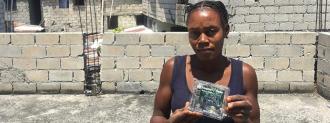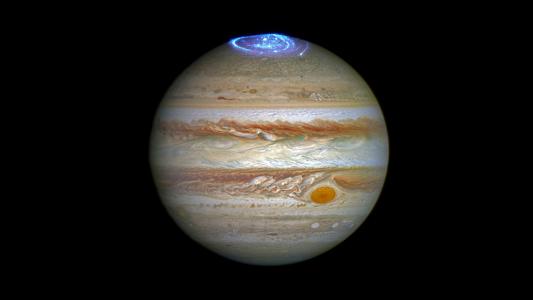Private citizens are helping scientists track the recent earthquake in Haiti by opening their homes and workplaces to low-cost quake-monitoring devices.
Data hungry: Earthquakes are triggered by movement along underground faults. This movement causes waves of energy to flow through the Earth, and seismographs can measure those waves.
Seismographs can’t predict earthquakes — nothing can — but data from networks of them can help determine the magnitude of a quake and pinpoint its epicenter, letting first responders know what level of damage to expect and where it’s concentrated.
“When it comes to locating quakes, determining magnitude — they are really excellent.”
Eric Calais
The devices can also be used to map aftershocks — smaller follow-up earthquakes — and those maps can help seismologists determine the cause of a quake and predict the risk of future events in a location.
The challenge: At the time of the devastating 2010 earthquake in Haiti, the nation had just one station monitoring seismic activity, so collecting aftershock data was difficult.
By the time a 5.9 earthquake hit in 2018, Haiti had several stations — but only one was in operation due to a lack of resources.
Raspberry Shakes: In 2019, an international team of researchers put in motion a plan to improve Haiti’s seismic network using small stations called Raspberry Shakes.
“You just connect it to power and the internet, and it provides data in real time.”
Eric Calais
These devices are typically marketed to hobbyists and aren’t nearly as advanced as Haiti’s official stations, but they cost just $500 each, making them 100 times cheaper.
“[W]hen it comes to locating quakes, determining magnitude, doing basic seismology — they are really excellent,” French seismologist Eric Calais told Nature.
Citizen seismologists: Using money left over from a grant, Calais purchased several Raspberry Shakes and distributed them to people in Haiti with reliable electricity and internet connections.
“We call them hosts, because they host a tiny little box, about 10 centimeters by 5 centimeters by 5 centimeters,” he told Science News. “And you just connect it to power and the internet, and it provides data in real time.”
The Raspberry Shakes are 100 times cheaper than Haiti’s official seismic stations.
Calais’ team has kept a network of 15 Raspberry Shakes operational for two years now, and in the week following the recent 7.2 magnitude earthquake in Haiti, the devices collected data on 600 aftershocks — about 60 times more than was collected after 2010’s quake.
“We now have very strong information about not only where the [14 August] quake occurred, but also how wide the rupture was, in which direction the fault was dipping,” Calais told Nature.
The team already has plans to add 50 more stations to the network, too, so if there’s another major earthquake in Haiti in the future, scientists should have even more data to help them study it.
We’d love to hear from you! If you have a comment about this article or if you have a tip for a future Freethink story, please email us at [email protected].





